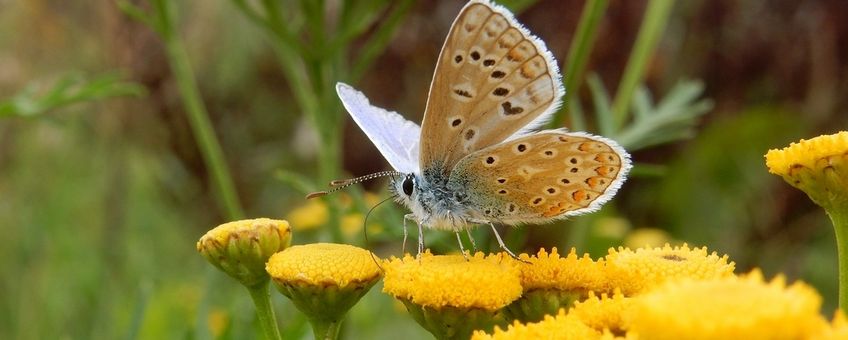
National approach to biodiversity: increasing knowledge for the Netherlands together
Naturalis Biodiversity Center, Netherlands Institute of Ecology (NIOO-KNAW), NIOZ Royal Netherlands Institute for Sea Research, Westerdijk Fungal Biodiversity Institute-KNAWNaturalis Biodiversity Center, the Netherlands Institute of Ecology (NIOO-KNAW), the Royal Netherlands Institute for Sea Research (NIOZ-NWO) and Westerdijk Fungal Biodiversity Institute-KNAW start a collaboration. The aim is to work together to significantly increase integral knowledge about Dutch biodiversity in all environments: on land, in fresh and saltwater, and from genes to ecosystems. Together, the four institutes will launch the Centre of Excellence for Netherlands Biodiversity Research. The centre forms the core for cooperation with the universities and knowledge institutes of the Netherlands. This creates a hub of knowledge about biodiversity that is available to every scientist. Therefore, the universities are explicitly invited to join.
The centre collaborates on research and shares important facilities to help science and society to move forward. The centre will be officially established on 29 September 2020. This will take place during the Biodiversity Gala, which is also the start of the celebration of Naturalis' 200th anniversary.
Biodiversity loss has economic impact
Biodiversity loss is one of the major threats to humanity and is having an increasing economic and social impact. (See also the recent report of the Dutch Central Bank and Netherlands Environmental Assessment Agency on the financial risks of biodiversity loss). The activities aimed at recovery do not always work.
Effective management and restoration of biodiversity requires more fundamental knowledge of biodiversity and the ecology behind it. Edwin van Huis, Managing Director of Naturalis: "It’s important that there’s a national approach to scientific research into biodiversity. This cooperation, of course also with universities and other knowledge institutions, makes it possible to do much better fundamental and applied research and to coordinate the research with each other and thus make smarter use of our resources".
National approach necessary
In the Netherlands, we are an international leader in many of the biological disciplines in the field of biodiversity. However, there is still often a lack of linkage of knowledge, for example about macro- and microbiological diversity. Moreover, it is important to better understand how species react to each other when diversity changes.
"Our commitment is to increase scientific knowledge of biodiversity in the Netherlands at the level of genes as well as species and ecosystems," says Prof. Dr. Geert de Snoo, director of NIOO-KNAW. "The challenges are obvious. Think of the relationships between biodiversity and climate change, land and water use, nitrogen and non-native substances. By working together as knowledge institutes, we are better able to gain insight in the restoration of our biodiversity".
"A unique feature of this alliance is the combination of national biodiversity knowledge, macro and micro, on land, air and sea", says Prof. Dr. Henk Brinkhuis, director of NIOZ. "This is urgently needed to achieve a real breakthrough in effective biodiversity management and restoration. Much is still unknown, so a lot of scientific research is needed to map current biodiversity and understand its interactions. This will enable us to achieve the objectives of the Delta Plan for Biodiversity Recovery, the North Sea consultations and other societal green agendas at an earlier stage".
Building on recent investments
This cooperation also builds on NWO's recent investments in the National Roadmap for Large-Scale Scientific Infrastructure. Awards were made for the ARISE project (including Naturalis, Westerdijk Institute) for the construction of a globally unique infrastructure to map all multi-cell species within the Netherlands and for the project to provide NIOZ's research fleet with innovative (large-scale) scientific equipment. NIOO-KNAW is also a partner in the Onder het Maaiveld project, in which underground biodiversity is given the attention it deserves with a contribution from the Dutch Postcode Lottery.
These important investments now make it possible to jointly obtain a more reliable picture of biodiversity throughout the Kingdom of the Netherlands faster and smarter: The Netherlands, Aruba, Curaçao and Sint Maarten. 
Text: Naturalis Biodiversy Center, NIOO-KNAW, NIOZ-NWO, Westerdijk Fungal Biodiversity Institute
Picture (common blue butterfly): Kars Veling
